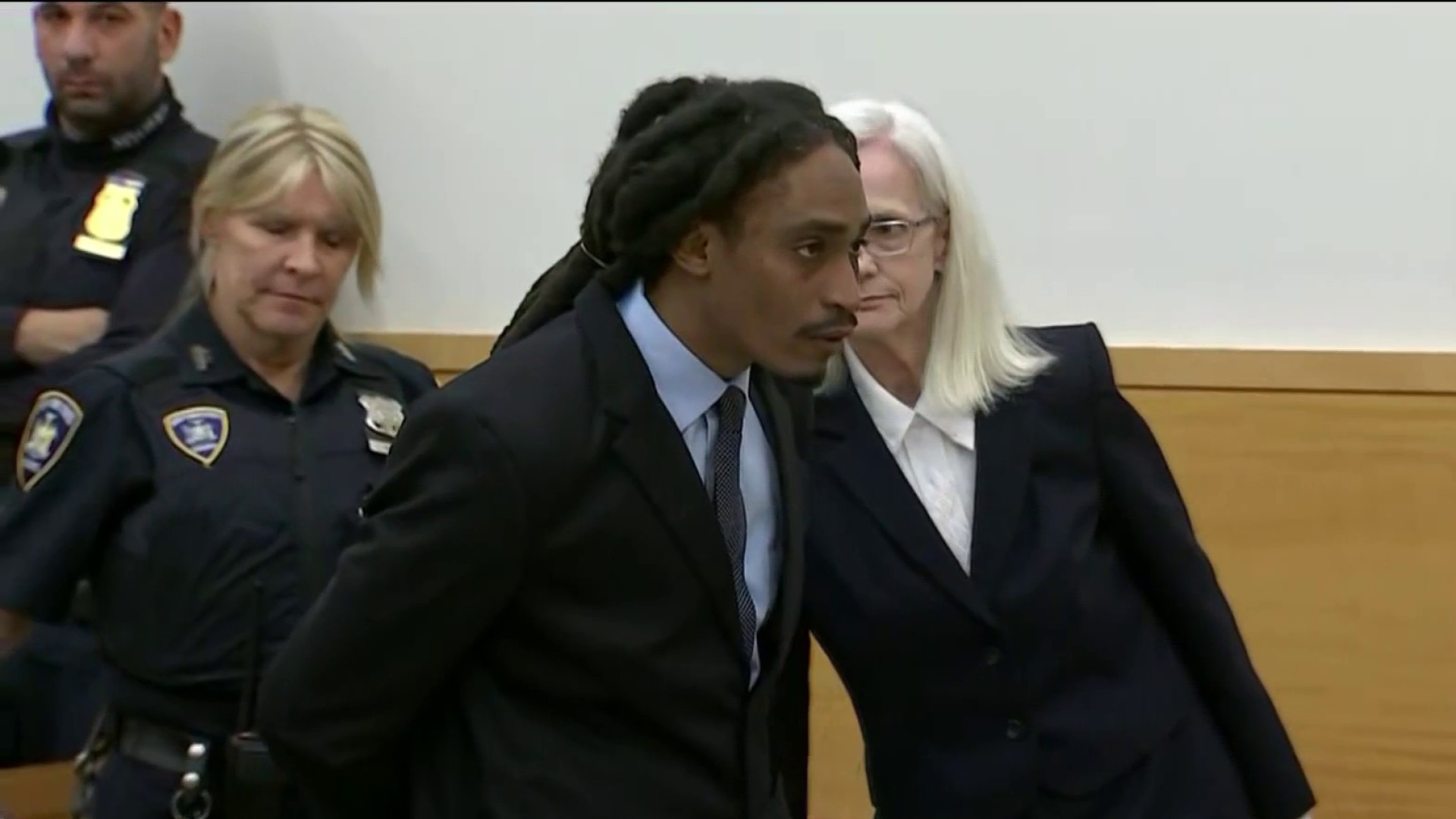After spending nearly 22 years locked up in New York state penitentiaries, Efraim Diaz is on parole — and on a mission to clear his name.
Diaz, 54, was convicted of murdering Consuelo Agudelo, a 31-year-old woman who was sleeping in her Woodside, Queens, apartment when she was shot execution-style in the back of her head. The killing took place in July 1992, but Diaz wasn’t arrested until nearly ten years later, when the sole eyewitness, Samir Hurtado, changed his story dramatically — while facing deportation related to a federal drug investigation.
"There was nothing connecting me to this crime," Diaz told the I-Team. "This man came out ten years after the crime was committed only because he was in custody."
Get Tri-state area news and weather forecasts to your inbox. Sign up for NBC New York newsletters.
On the day of the murder, Hurtado was also injured by gunfire in Agudelo’s apartment but he survived. According to police notes and records from that day, he repeatedly told first responders the killer — or killers — were Black men.
One of the first responding NYPD officers wrote in his notepad that he spoke to a medic "who stated that the male victim [Hurtado] told him that 2 male Blacks just shot him."
Another page of the same police notebook memorializes a statement from Hurtado himself, where he "stated 2 male Blacks pushed their way into [the] apartment [and] went over to [the female] when she was sleeping and shot her." Later, an NYPD platoon commander in the 108th precinct typed up a report on the homicide, which says Hurtado "stated that two males, dark complexion...forced their way in and first shot Consuelo Agudelo in bed and then fired on him."
About eight hours after the shooting, while recovering from his gunshot wounds at Elmhurst Hospital, Hurtado changed his story slightly. According to detectives’ notes, he now implicated only a single intruder, no longer two men.
But from his hospital bed, he maintained that the killer was "a largely built male Black [who] pushed him into the apartment." The detectives’ notes went on today say Hurtado "described the male as M/B/20’s, approximately 6 feet" and that he was "not of Hispanic extraction."
Diaz, who is 5’6”, says he never met the victim Agudelo or her boyfriend, Hurtado. And he says there is no way he could be mistaken for a large stature Black man.
"I would describe myself as a white Hispanic," Diaz said.
Now out of prison, Diaz is asking Queens District Attorney Melinda Katz to support his request for a conviction reversal or a new trial.
A spokesperson for the Queens DA said her office could not respond to specific questions about Diaz’s conviction, but did confirm his case is being reviewed by prosecutors who specialize in wrongful conviction claims.
"Mr. Diaz’s case is one of more than 130 currently being evaluated by the Conviction Integrity Unit for investigation," the spokesperson said. "For there to be justice in the criminal justice system, and faith in its outcomes, it is imperative for prosecutors to follow the facts to where they lead. The district attorney created the Conviction Integrity Unit when she took office in 2020 and has since vacated 99 convictions."
In the original trial, Hurtado denied ever describing the killer or killers as Black men, and the jury never got to see the police notes that directly contradicted him. According to portions of the trial transcript reviewed by the I-Team, the police notes were never entered as evidence and never referred to on cross examination.
The jury also never got to see a prior felony domestic violence complaint filed against Agudelo’s husband, who had since passed away. The criminal complaint was unsealed just before the trial began, but Diaz’s defense attorney, Murray Singer, said he was never given the paperwork until after the guilty verdict.
The wording of that complaint alleged that Agudelo’s husband had once stabbed her with a screwdriver in a fit of rage, a narrative that supported the defense theory that it was more likely the woman’s killing had to do with romantic jealousy than with drugs.
“I stand by my work representing and defending Mr. Diaz, and continue to believe that Mr. Diaz is innocent and was wrongfully convicted,” Singer said. “I hope that his continued efforts to be exonerated will be successful.”
At trial, Queens prosecutors relied entirely on Hurtado’s story. There were no fingerprints, DNA ballistics or physical evidence linking Diaz to the crime scene. After the conviction, the Queens district attorney's office wrote a letter to U.S. Immigration & Customs officials, confirming Hurtado's cooperation led to a murder conviction. The letter stated that Hurtado was promised nothing in return for his testimony.
Though Hurtado originally told police he didn’t recognize the killers, at trial he admitted to lying. At the time, a New York Post headline labeled him a "Flip Flop Druggie" because he now testified that he recognized Diaz as one of the killers because they both participated in the drug trade during the late 1980s and early 1990s. Diaz had three prior non-violent drug arrests, but by 2001, when he was hauled in for the murder, he says he had turned his life around and was focused on a career helping disabled children.
"I dedicated myself to do better, to be better. I turned my whole life around and here I am being pulled back and yanked into this," Diaz said.
The I-Team’s efforts to reach Hurtado were unsuccessful. Attempts to contact relatives of Agudelo were also unsuccessful.
After more than two decades behind bars, Diaz is balancing his time trying to find steady work and trying to find help in his crusade to prove his innocence. While incarcerated, he reached out to Avi Gross, an investigator who founded Live and Direct, a social media webcast dedicated to stories of wrongful conviction and prison reform. Gross was able to take Diaz’s case file and shop it around to lawyers.
“I just take the documents from attorney to attorney hoping that attorneys can pick it up and see the case, read the case and see that he is actually wrongfully convicted,” Gross said. “That’s basically my thing, to go out and make sure these people in prison are heard.”
Recently, Gross and Diaz had success. A group of attorneys at the nonprofit Exoneration Initiative has agreed to re-investigate the case.
Judge Richard Buchter, who presided over the trial and is now retired, declined to comment on the Diaz case. At the 2003 sentencing, Buchter called the evidence against Diaz “far from overwhelming.”
Diaz wants the world to know, he has always maintained his innocence, even when prosecutors and the judge offered him as few as 5 years in prison – in exchange for a guilty plea. He was facing 30 to 40 years.
"I didn’t take the offer because, for one, I wouldn’t know how to face my family by pleading guilty to taking the life of a person, of a human being," Diaz said. "I couldn’t do that."



